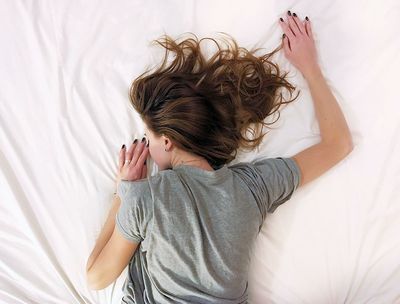Sweating at night - night sweats

For many sufferers, this is a serious but often medically undetected problem:
Sweating during sleep
Constant waking during the night, interruptions of the sleep cycle, waking up drenched in sweat, soaking wet night clothes and soaked bed linen. All these phenomena of night sweating give reason to believe that the high tendency to sweat at bedtime could be caused by a systematic disease or even the side effect of medication.
Night sweats are a common problem in medical practice. A terse appeasement that the sleeper is just too warm (hot air, too thick duvet etc.) and that the quality of the bed linen needs to be changed does not do justice to the problem, nor does the general phrase often used in the context of hyperhidrosis:
"Sweating is quite normal and healthy."
However, pathological, i.e. pathological nocturnal sweating must be assumed if the sweat secretion is so great that pyjamas, nightgowns, underwear or bed linen have to be changed dumes.
Differential diagnosis for night sweats
- Infections (infectious causes such as TB, abscesses, febrile illnesses, etc.)
- Neoplasia (tumour diseases)
- Medication (e.g. antidepressants)
- Endocrine (e.g. menopause, hyperthyroidism)
- Gastroenterological, neurological and psychiatric (reflux, spinal cord injury, withdrawal - alcohol).
Treatment of night sweat
In order to stop the unpleasant sweat during sleep, the first step is to use a detective approach to determine the possible causes, as described above, and to make a differential diagnosis.
A detailed anamnesis with regard to lifestyle habits, medication intake, etc., a physical examination, general functional examinations and special functional examinations are the necessary steps in the therapy process of night sweats. If this diagnostic algorithm is adhered to by medical specialists, there is a good chance of effectively counteracting sweating during sleep.

